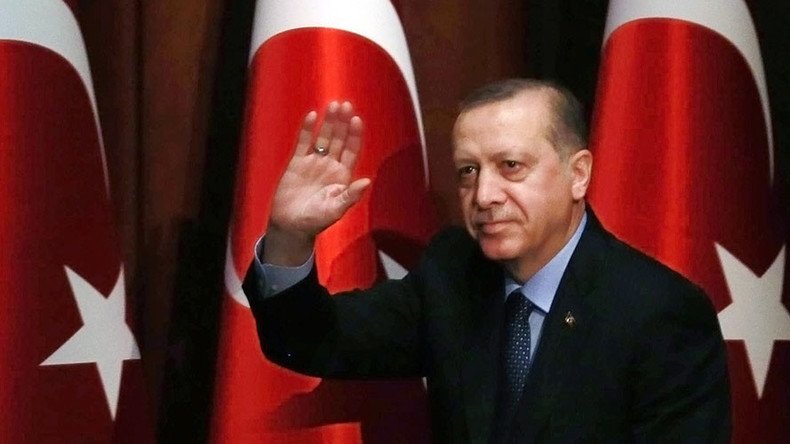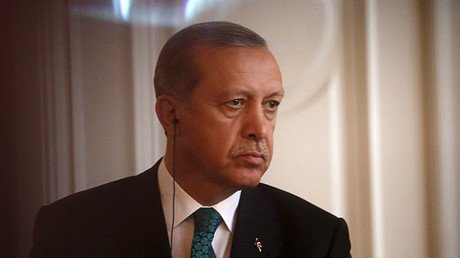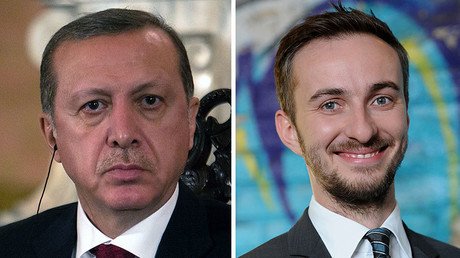German court upholds censorship of notorious Erdogan insult poem

A German court upheld its ruling prohibiting comedian Jan Boehmermann from reciting the most explicit passages from his satirical “anti-Erdogan” poem that landed him in the middle of a diplomatic row last year.
A court in Hamburg announced its verdict on Friday, February 10 – almost a year after the row took place, local media report. Boehmermann presented the poem in March 2016 during his ‘Neo Magazin Royale’ TV show. The crude satire implied, among other things, that Turkish President Recep Tayyip Erdogan watches child pornography and has sex with animals.
The same court in Hamburg banned the republication of 18 out of 24 verses of the poem in May, finding them “abusive and defamatory” and thus unacceptable.
The recent verdict found that “artistic freedom is unconditional but not unbounded,” adding however that a head of state “must accept heavy criticism, as freedom of expression arises from the special need to criticize power.”
Both sides had promised to file an appeal in the event they lost, although Boehmermann’s lawyers are yet to comment on the matter.
The case was launched by Erdogan under a rarely-invoked ‘lese-majeste’ law, also known as ‘injured majesty’ law, that Germany is planning to get rid of.
“The idea of ‘injured majesty’ comes from a long-gone epoch and it doesn’t fit in our criminal code anymore,” Justice Minister Heiko Maas said, adding that the “regulation is obsolete and unnecessary,” the Justice Ministry website said in late January.
The ministry plans to scrap the law by January 1, 2018. The decision has already been approved by the Bundestag, the German parliament.
Chancellor Angela Merkel faced much criticism after she satisfied Erdogan’s request to investigate the case despite public outcry.
Human Rights Watch also condemned Merkel’s decision, saying it was crucial for Germany to defend freedom of speech “even if the contents of the speech are offensive to some.”
Boehmermann’s poem came in response to Erdogan’s reaction to a separate video with a song mocking the president that appeared on German television and used much milder language. After the first video the German ambassador to Ankara was summoned to provide an explanation.
The criminal charges against Boehmermann were dropped in October due to a lack of evidence.














